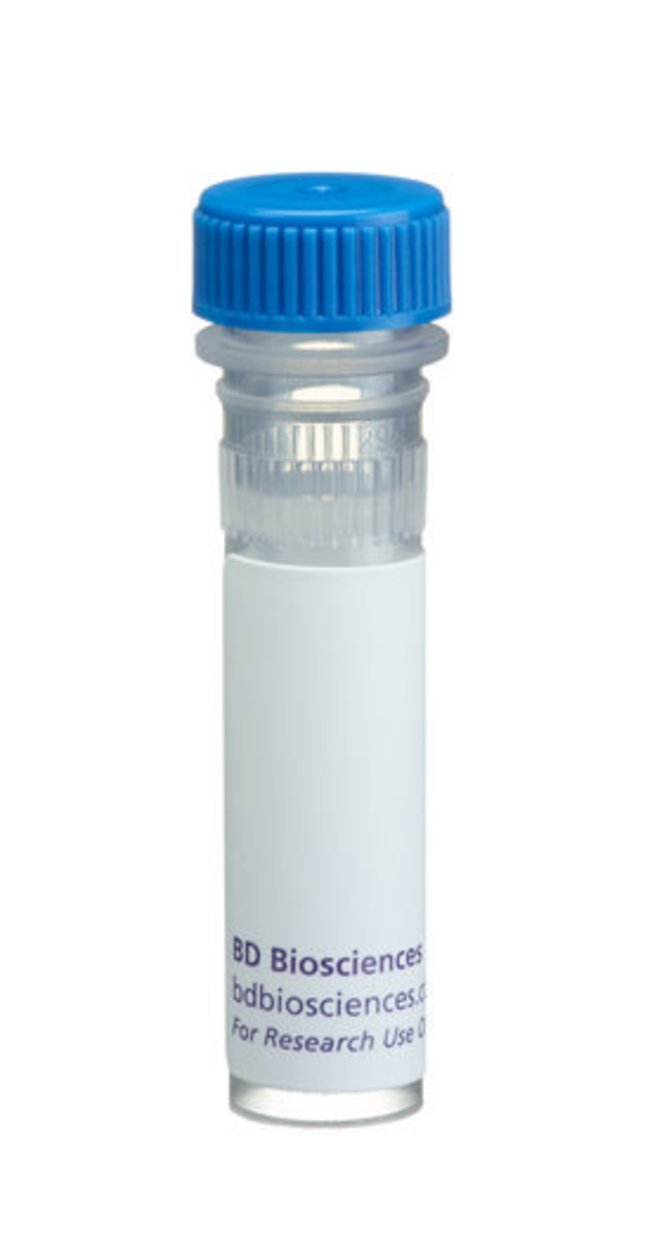eIF-4E Mouse, Unlabeled, Clone: 87, BD, Mouse Monoclonal Antibody, Each

Details:
The eukaryotic translation initiation factor 4E (eIF-4E) is a 25kDa phosphoprotein that specifically binds to the 7-methylguanosine-containing cap of mRNA. eIF-4E is the rate-limiting component for the initiation of cap-dependent translation by the eIF-4E translation initiation complex. This complex promotes the unwinding of secondary structure at the 5′ untranslated region of mRNA, which is necessary to expose and locate the AUG-initiation codon. Phosphorylation of eIF-4E on Ser-209 occurs after serum treatment in CHO cells, and may regulate its function. Overexpression of eIF-4E can lead to increased cell proliferation, transformation, and tumorigenesis in nude mice. The overexpression of a Ala-53 variant of eIF-4E cannot evoke these changes, suggesting that Ser-53 on eIF-4E participates in the transfer of mRNA to the 48S initiation complexes. In cooperation with nuclear oncogenes such as c-myc or E1A, eIF-4E transforms primary cells. Other studies have demonstrated that overexpression of eIF-4E causes activation of Ras and leads to a transformed phenotype. Subsequent overexpression of GAP then causes reversion of this phenotype. The mechanism by which eIF-4E plays a role in transformation is not clear, but it is postulated that high levels of eIF-4E may lead to the translation of mRNAs that are normally translationally repressed.Host Species: MouseClone: 87Isotype: IgG1Species Reactivity [for Features Main]: HumanImmunogen: Rabbit eIF-4E aa. 1-217Immunofluorescence, Immunoprecipitatio
Additional Information
| SKU | 10134882 |
|---|---|
| UOM | Each |
| UNSPSC | 12352203 |
| Manufacturer Part Number | 610269 |
